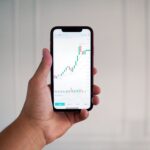Introduction
In the world of financial markets, traders face a significant psychological challenge known as confirmation bias. This influential phenomenon can greatly impact how traders make decisions and perform in their trading activities. In this comprehensive article, we will delve into the intricate details of confirmation bias, its effects on decision making and performance, and explore strategies to combat this bias. By understanding and mitigating the influence of confirmation bias, traders can enhance their trading strategies and yield better results.
Understanding Confirmation Bias
Confirmation bias, as a cognitive bias, occurs when individuals actively seek out information that supports their existing beliefs while disregarding or downplaying information that contradicts those beliefs. Traders, just like anyone else, are prone to falling victim to this psychological bias. At its core, confirmation bias limits objectivity and hinders traders from making well-rounded decisions based on all available information.
The Impact on Decision Making
Confirmation bias significantly shapes how traders make decisions. Instead of thoroughly considering a range of available information, traders tend to selectively focus on data that aligns with their preconceived notions. This biased decision-making process can lead to false interpretations of market trends and flawed decision making.
When traders become overly committed to a particular market direction, confirmation bias can reinforce their beliefs and overshadow potential warning signals. This unwavering conviction can result in missed opportunities for growth and improvement. To remain adaptable and competitive in today’s markets, it is crucial for traders to continuously test their assumptions and strive for a comprehensive understanding of the markets.
Confirmation Bias in Backtesting
Backtesting, a process where traders evaluate the performance of their trading strategies using historical data, is a key aspect of trading strategy development. However, confirmation bias can significantly impact this process and distort the results and reliability of the strategies.
Traders influenced by confirmation bias tend to interpret backtesting data selectively. They assign more weight to outcomes that confirm their existing beliefs, potentially overestimating the effectiveness of their strategies. This selective interpretation can lead to a false sense of confidence, as positive results may be attributed to chance rather than true resilience.
Furthermore, confirmation bias can skew backtesting results towards the positive. Traders may rationalize or overlook periods of losses by attributing them to exceptional circumstances rather than fundamental flaws in their trading methods. By doing so, they underestimate the real risks associated with their strategies.
Selection of data used in backtesting is also susceptible to confirmation bias. Traders may unintentionally choose data that supports their strategy’s performance while disregarding conflicting data. This cherry-picking practice can result in inaccurate and misleading backtesting results, providing an incomplete picture of the strategy’s past performance.
Combating Confirmation Bias in Backtesting
To combat confirmation bias during the backtesting process, traders must strive for objectivity and maintain a critical stance. It is essential to evaluate both positive and negative results equally, considering different market periods and avoiding the outright dismissal of adverse signals. By incorporating a more comprehensive range of backtesting data, traders can obtain a more realistic evaluation of their strategy’s robustness.
At a core level, traders must recognize confirmation bias and actively develop strategies to manage it. Diversifying sources of information, seeking contrary opinions, and maintaining an open-minded approach are effective strategies in reducing the harmful effects of confirmation bias. Establishing a decision-making process based on objective criteria rather than subjective preferences is key to mitigating the influence of confirmation bias.
Conclusion
Confirmation bias can significantly impact traders’ decision making and overall performance in financial markets. By understanding the intricate workings of this psychological bias and implementing strategies to combat it, traders can enhance their trading strategies and make more objective and informed decisions.
Vigilance against confirmation bias is crucial during the backtesting process, as it significantly influences how traders interpret, select, and evaluate data. Traders must strive for objectivity, considering all aspects of their strategy’s performance, and diligently work towards minimizing the influence of confirmation bias in their decision-making processes.
By adopting an approach characterized by objective analysis and a nuanced understanding of financial markets, traders can optimize their performance and achieve better results. In the world of trading, recognizing and combating confirmation bias is a significant step towards becoming a successful and adaptive trader.



